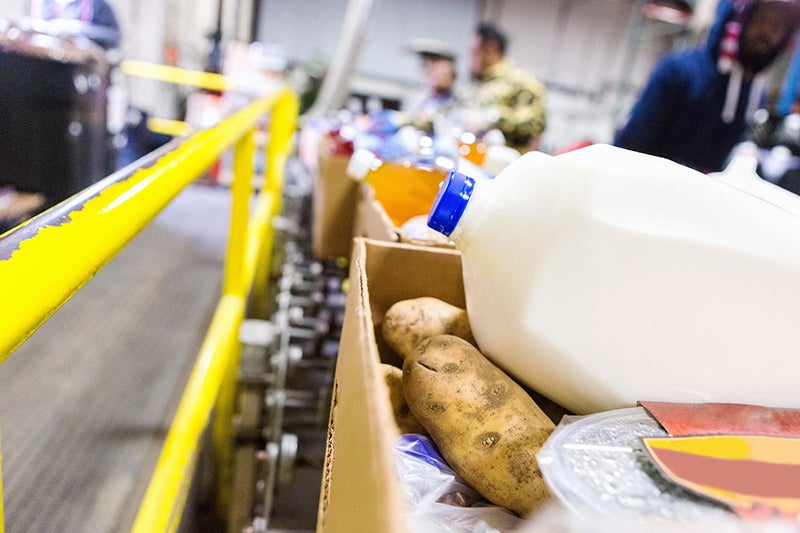
COVID-19 compounds the impact of food insecurity on college campuses and beyond.
Food insecurity is an issue that plagues college campuses—according to the College and University Food Bank Alliance, 30% of college students are food insecure. It’s a humbling and astounding statistic to consider that three out of 10 students on our campus lack reliable access to affordable and nutritious food. And unfortunately, COVID-19 has exacerbated this situation, impacting food insecure individuals here and across the country, in communities large and small.
“Food insecurity is a dangerously secretive problem that’s easy to miss, even when it’s standing right in front of you,” says Marketing Instructor Heather Kennedy. “We are so lucky to be part of a beautiful campus located in an abundant community. Sometimes it’s hard to believe this problem is impacting our students on a regular basis.”
This is one of the reasons Kennedy is spearheading a new food pantry initiative to address food insecurity at CU Boulder over the summer.
COVID-19 upended many internships and job opportunities for students this year. Kennedy thought back to an idea of creating a campus food pantry she had a few years ago and decided this may be an opportunity to put MBA students’ skills to work in the service of the CU Boulder community. With the support of the Center for Ethics and Social Responsibility (CESR) and the MBA program, the new pantry project was born.
“Starting a food pantry taps into the business skills they’ve learned over the last year: strategy, logistics, accounting, marketing and project management, to name a few,” explains Kennedy. “The goal is to put those skills to work on a project that will have a positive social impact on our campus community.”
Drawing from her experience working for Feeding America, the umbrella organization for all U.S. Food Banks, Kennedy is providing MBAs with help, guidance and feedback on the process but empowering them to take the lead on creating the strategy and execution for the project.
CU Boulder’s Volunteer Resource Center took on the issue of food insecurity a few years ago but had not yet established a permanent location for a pantry. Now may be the time to do so, and they’ve agreed to partner closely with the MBA team on this project.
First, the MBA students will conduct a situation analysis and needs assessment to understand the problem and the resources available to address the issue. Using their strategic skills, they will create potential solutions to the problem and then recommend a plan and the actionable steps needed to execute it. The students will also need to determine whether a food pantry is the most appropriate solution or if there is another alternative way to address this issue.
MBA student, Galen Kuney, was drawn to the opportunity to work with peers to solve a real issue in the Boulder community and beyond. He hopes to become more informed about the root causes of food insecurity and discover creative ways to solve the issue.
“I hope we can not only make a positive impact within the local community but also have this project serve as an example for other communities by creating a model for how they can help combat this problem,” he says.
Fellow MBA student, Sterling Boin, echoes this sentiment. “Working hands-on to reduce food waste and food insecurity is an actionable and rewarding approach to reducing these externalities,” says Boin.
For the past three years, Boin has volunteered at Boulder Food Rescue and Denver Food Rescue and sourced about 80% of his food from underutilized food resources. His dream is to bring about systemic benefits by elevating the issue among a diverse group of stakeholders.
Kennedy credits John Helmers, associate director of graduate career management and Julie Waggoner, interim director of CESR, for their support in getting this project off the ground.
“We are proud to contribute to this important effort to support the many food insecure people in our community, and to provide meaningful work and professional development opportunities for the students involved,” says Waggoner.
We are excited to see this project take form here at Leeds, and are thankful to Heather Kennedy, John Helmers, Julie Waggoner and the MBA students for their commitment to social impact projects during these trying times.





